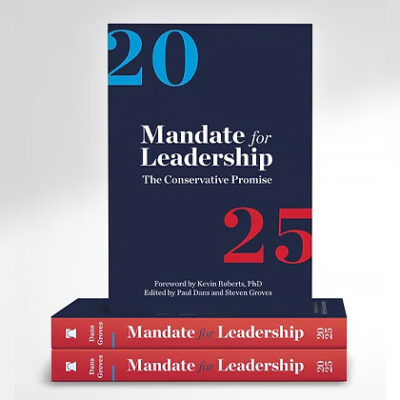Issue: Unprecedented Original Intent
Updated: Feb 8
by J. Michael Atherton
The NH Republican platform says they, “Demand the appointment of judges who recognize their proper and limited interpretive role, relying only on the original intent of the federal and state constitutions.” Much hangs on a few words here, but these few words remain ambiguous and troubling. Endorsing a belief in Original Intent (OI) only seems benign.
Clarification first: Those who promote OI thinking find meaning in the constitution exclusively as it was understood at the time the constitution was written, i.e., 18th century America. In other words, they drive the ship of state exclusively using their rear-view mirror. This may seem odd but it has a direct impact on our daily lives.
Those who use OI to interpret the law should concern us all because the law touches everyone and OI attacks the foundation of all those laws. Anything that confuses, garbles, or misdirects legal issues harms us all. If we follow the GOP platform, they would allow their belief in OI to cripple our state.
So, the topic is as serious as the law and serious things deserve close scrutiny. It might seem that OI simply means we must discern the intent of those who penned the original constitutional papers; however, things are not always what they seem.
A moment’s reflection raises questions about this simple(minded) interpretation. After all, we cannot find the OI concept in the original documents. Not even a hint. We must mine subsequent commentary of authors as they addressed the issue in order to determine intent. This leads us to ask which authors, at what stage in their life, which of their documents, what is the relationship of any given non-constitutional text to the constitution, and other questions. Should, for example, OI proponents cite Ben Franklin’s book entitled Fart Proudly? If not, then what else do we exclude or include? Since we find no OI comments in the constitution we cannot cite the document itself to guide our selection process.
If we can’t use the constitution to determine which texts support OI, then what? Perhaps tradition enters here, meaning some people have used OI for such a long time, that we should keep it going. But this begs the question of which tradition to follow and why select one tradition rather than another. OI by no means represents the default, the most powerful, or the most useful tradition.
One alternate tradition involves adapting constitutions to address present conditions. This view is especially relevant when we face things unimagined by those who wrote the constitution such as artificial intelligence, nuclear weapons, voting rights for minorities, and women’s rights.
Using 18th century life as a standard to judge the entire future of our country seems an inadequate, naïve, and crude abrogation of duty. Said duty is to keep the constitution alive so it provides guidance for today’s problems, not just those of our ancestors.
We don’t need to debate the legalities of using buggy-whips, herding cows through main street, or wearing tri-corner hats in Congress, but we should address the legalities of the Equal Rights Amendment, the use of drones, and on-line scams. Further, OI makes the constitutional writers into little godlings whose text becomes an untouchable holy scripture. In any case, we already have a precedent for adapting the constitution to relevant concerns: the Bill of Rights.
The Bill of Rights began a long history that let non-18th century thinkers update and adapt the constitution to address new conditions and insights. We call these adaptations amendments. While amendments should occur infrequently, an outright ban on amendments, as OI supporters would do, shackles us to yesteryear which blinds us to today and tomorrow.
OI fails when addressing key elements of life. For example, OI doesn’t address the need to include women as voters since the original document contained no such provision. OI ignores African-Americans as voters for the same reason. In fact, OI must oppose any amendment to the constitution because every amendment represents latter day changes to the original document.
Benighted OI thinking threatens us all. We would live in an altogether less civil and open society if we permitted OI advocates to erase the Bill of Rights. The threat to expunge the Bill of Rights is not hyperbole. A consistent OI supporter must advocate the repeal of the Bill of Rights because we find nothing in the constitution showing that the original writers intended to promote any item in the Bill of Rights as evidenced by the fact that the authors did not actually include any of those items in the constitution itself. That some 18th century states ratified the constitution with the stipulation that the Bill of Rights be included shows that even 18th century people knew the constitution required adaptation.
The constitution should serve as a compass that guides us through troubled waters, not a chain binding us to the dock of yesteryear. Admittedly, the insight, wisdom, and street-smarts of its authors shine bright in our constitution. But even they were not arrogant enough to say they had thought of everything or that things can never change from 18th century America. Granted, amendments should be few and far between because parochial political bickering can blind us to the dangers of whimsically amending the constitution. Witness the fiasco of “Prohibition”.
The NH GOP platform ignores this caveat about amending the constitution and would tie us permanently to fossilized OI thinking. The GOP would tie today’s legal life to the 18th century where white, male, landowners made all decisions. The NH GOP offers no appeal, shows no concern for shifting contexts, and arrogantly discounts today’s voices, which ironically includes their own.
Since the NH GOP wants to live in the past, let them. They can debate regulations on yesteryear’s hot-button issues: tax revenue from whale oil lamps, whether Illinois should become a state, and dental standards for wooden teeth. Their peculiar obsession to determine exactly what 18th century people thought lets the Dems take care of today’s business by respecting the past, living in the present, and planning for the future. Such an outcome may not be what the NH GOP originally intended but it allows the rest of us to stay legally alive, legislatively nimble, and governmentally savvy.

About the author
J. Michael Atherton has retired from 30 years of teaching philosophy (and 20 years teaching a variety of subjects from elementary to graduate school). He spent four years in the Peace Corps in Swaziland (now Eswatini), followed by marriage to Cynthia Walter, the birth of their first child, and a PhD at the University of Chicago. Cynthia and Mike then moved to Southwest Pennsylvania where she taught ecology and he taught philosophy while they raised their two daughters. In 2019, the Atherton’s moved to Dover to be near their grandsons. Mike has consistently found the Dems to be a group that follows their stated values: compassion, honesty, integrity, respecting the dignity of all people, expanded freedom, responsible citizenship, promoting civil society, and protecting our environment.








